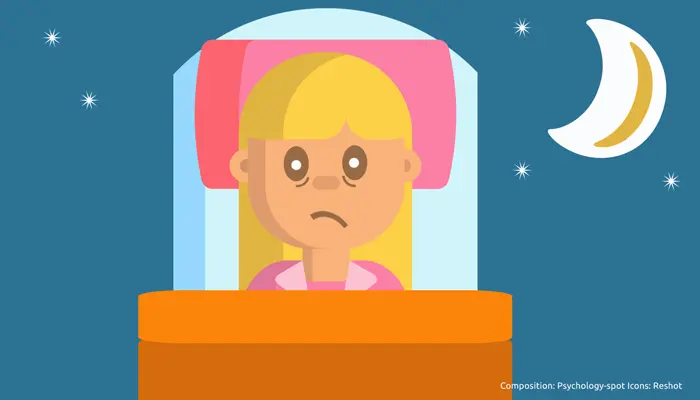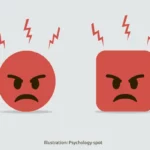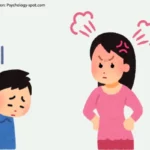
Some people have trouble sleeping, but for others the opposite is true: they experience excessive daytime sleepiness. There are those who are banging their heads at all hours or fall asleep at the first opportunity in situations in which most people could not fall asleep.
However, sleeping too much is bad. For this reason, drowsiness is a common complaint in Neurology consultations, since this feeling of constant sleepiness can become quite difficult to manage, affecting the day-to-day life of those who suffer from it.
Excessive daytime sleepiness, a hypersomnia that you should pay attention to
Excessive daytime sleepiness is the feeling of being especially tired or sleepy during the day. Unlike fatigue, which is more related to a lack of energy, sleepiness can make that feeling of sleepiness and mental exhaustion interfere with daily activities or even relationships. In fact, it leads to problems with concentration, memory and mood.
In the clinical setting, excessive sleepiness is “hypersomnia”, a physiological state that promotes sleep. Excessive Daytime Sleepiness (ESD) is the subjective sensation of sleepiness at inappropriate times or situations. To refer to this disorder, that sleepiness must occur daily for at least three months.
It affects between 4 and 6% of the population and can be more serious than it seems, since hypersomnia could favor more serious pathologies or be the prelude to them, since it has been related to diseases such as Alzheimer’s and other dementias, as well as peripheral neuropathies and other neuromuscular disorders.
What are the causes of daytime sleepiness in adults?
Excessive daytime sleepiness can be caused by different factors, so it is important to distinguish between primary and secondary hypersomnia. In primary hypersomnia there is an alteration in the sleep-wake rhythm, as in narcolepsy, a chronic neurological disease that generates excessive hypersomnia and in many cases also cataplexy.
Instead, secondary hypersomnia is due to various diseases or drug intake or abstinence. In fact, one of the most common causes of daytime sleepiness in adults is insufficient sleep. If you don’t sleep well at night, either because you can’t because of your work, a health problem or worries, it is normal for you to fall asleep during the day.
In fact, daytime sleepiness is often common in people who have highly responsible jobs and sleep 5 hours or less each night. In these cases, they have difficulty getting up in the morning and experience bouts of sleepiness throughout the day. Not sleeping enough is responsible for this hypersomnia.
In other cases, the cause of daytime sleepiness in adults is fragmented sleep. In fact, it is important to be clear that the quality of sleep is just as important as the quantity. If you can’t sleep through long enough, your sleep won’t be restful.
Frequent awakenings during the night can prevent adequate sleep, leading to excessive daytime sleepiness. Periodic leg movements at night, such as restless legs syndrome, are a common cause of sleep fragmentation. Other diseases, such as arthritis, chronic pain, epilepsy, asthma, sleep apnea, urinary dysfunction, gastroesophageal reflux, and even irritable bowel syndrome are associated with fragmented sleep.
It is known that also some diseases of the nervous system can cause excessive daytime sleepiness. Many toxic and metabolic encephalopathies generate hypersomnia, especially when the reticular formation of the trunk or the paramedian diencephalic structures are damaged, since these are involved in the regulation of the sleep-vigil state. Daytime hypersomnia is common after encephalitis or trauma, but also in degenerative dementia or people with neuromuscular disorders.
Even psychological disorders such as depression can be the cause of daytime sleepiness in adults, especially when they suffer from insomnia at night. Obviously, there is a long list of drugs that also cause hypersomnia, including sedatives, hypnotics, antidepressants, anxiolytics, antihistamines, antiepileptics, antihypertensives, and neuroleptics.
The consequences of excessive sleepiness during the day
As a rule, an adult should sleep at least 7 hours. If this doesn’t happen, we will end up paying the consequences. We will not only experience mood swings but also cognitive difficulties such as lack of concentration, slow thinking and memory problems.
Those changes affect our performance, cause mistakes and accidents, or make our day uphill, so they end up generating chronic fatigue. In the long run, depending on their intensity and frequency, they could affect the quality of life.
The problems associated with excessive daytime sleepiness don’t end there. People who suffer from hypersomnia are more likely to suffer from metabolic diseases such as diabetes and obesity, heart diseases such as heart failure and heart attack, as well as strokes, skin problems such as alopecia, eye problems such as flaccid eyelids, and even nutritional and Immunological deficits that increase the predisposition to develop some types of cancer.
How to prevent hypersomnia from becoming chronic?
The best way to remedy this problem is to prevent it from perpetuating itself. It is important that you try to understand what is at its base and that you avoid some habits that can make it worse:
• Reduce the consumption of exciting substances such as coffee or black tea, especially during the afternoon or at the end of the day.
• Eat a light dinner and wait three hours before going to bed so that digestion does not affect sleep.
• Avoid long naps (more than 20-30 minutes) that affect the quality of night sleep, and never take them in the evening.
• Maintain regular sleep schedules, going to bed and getting up always at the same time.
• Avoid exposure to bright blue lights, especially those emitted from electronic device screens, expecially at night if you have trouble falling asleep.
• Maintain a suitable environment that favors sleep, avoiding noise and making sure that the temperature is pleasant.
• If necessary, perform a bedtime ritual to relax, such as listening to calming music or taking a hot shower.
If daytime sleepiness persists, despite a good night’s sleep, it is advisable to consult a sleep specialist.
Sources:
Gandhi, K. D. et. Al. (2021) Excessive Daytime Sleepiness: A Clinical Review. Mayo Clin Proc; 96(5): 1288-1301.
Erro, M. E. & sandio, B. (2007) Las hipersomnias: diagnóstico, clasificación y tratamiento. Anales Sis San Navarra; 30(1).



